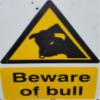| Interesting article on Fukushima 08:43 - Jun 3 with 1720 views | StokieBlue |
Interesting on a few levels, firstly about the hysteria caused by just the thought of radiation and secondly about how people don't trust the word of experts which feeds into the whole wider debate over the last few years on that point and fake news:
https://www.theguardian.com/environment/2018/jun/03/was-fallout-from-fukushima-e
In the end it looks like the governmental response to the incidient was actually more dangerous than the radiation, however the psychological effects of the accident and more important the evacuation are longer lasting.
Some choice quotes:
"It only later emerged that the radiation received by the public had been trivial. Many still don’t believe it. “Less than 1% of the affected people got a dose of more than 1 millisievert from external exposure,” says Sae Ochi, a paediatrician who went to Fukushima as a volunteer after the accident. The global average annual background dose from natural sources of radiation is about 3 millisieverts in a year."
"But by then the damage was done. Seven years on, many people in Japan say they will never listen to nuclear experts again, including radiation doctors. "
"But the doctors were on a hiding to nothing. As Nollet said: “It’s very difficult to convince the public about this. And when we try, we are seen as complicit in nuclear power.”
"But in truth most evacuees do not want to go back. They don’t trust the experts and, anyway, they got compensation and have new lives elsewhere. A year ago, Namie, an evacuated town close to the plant, was declared safe, but so far only a few hundred of its 20,000 former residents have returned.
In the empty lands around Fukushima today, most of the radiation is long since gone. But the ghosts linger."
SB |  |
| Avatar - IC410 - Tadpoles Nebula |
| |  |
| Interesting article on Fukushima on 09:06 - Jun 3 with 1676 views | ElderGrizzly |
Although they have found 113 cases of thyroid cancer when they would normally expect to find 4?
Nonetheless, they began a long-term screening programme among Fukushima’s children to make sure there were no ill-effects. And that’s where the problems began.
An initial ultrasound survey of thyroid glands two years after the accident — well before any cases of thyroid cancer from radiation would be expected to show up — found large numbers of cysts and nodules on thyroid glands. There were 113 cases of thyroid cancer, compared with the four that doctors would expect to diagnose in a normal population of the same size without screening.
Some Doctors are saying this down to the screening finding it, rather than increased exposure to radiation, but as with Chernobyl, thyroid cancer is proven to be the biggest risk. |  | |  |
| Interesting article on Fukushima on 09:22 - Jun 3 with 1650 views | StokieBlue |
| Interesting article on Fukushima on 09:06 - Jun 3 by ElderGrizzly |
Although they have found 113 cases of thyroid cancer when they would normally expect to find 4?
Nonetheless, they began a long-term screening programme among Fukushima’s children to make sure there were no ill-effects. And that’s where the problems began.
An initial ultrasound survey of thyroid glands two years after the accident — well before any cases of thyroid cancer from radiation would be expected to show up — found large numbers of cysts and nodules on thyroid glands. There were 113 cases of thyroid cancer, compared with the four that doctors would expect to diagnose in a normal population of the same size without screening.
Some Doctors are saying this down to the screening finding it, rather than increased exposure to radiation, but as with Chernobyl, thyroid cancer is proven to be the biggest risk. |
I agree that looks worrying but they go on to explain that the doctors expect to find something like that if you do a widespread screening on a certain population for a specific condition. Iodine-131 which causes thyroid cancer has a half-life of 8 days as the article also points out.
I'm not saying it wasn't bad (it certainly was) or that there aren't effects, just that anything with nuclear in it stirs up bad feelings to the point where experts aren't trusted. The non-trusting of experts was the wider point I was making, it has unfortunately spread into every walk of life - experts are not to be trusted and don't have our best interests at heart. I find this worrying. I also found it interesting that the poor handling of the evacuation will likely lead to more deaths than the radiation exposure.
With regards the radiation itself, the 1-3 millisieverts average exposure specified in the article, here are some examples closer to home:
- You get 1 millisieverts worth of radiation from 300 hours flying.
- The average background radiation in Cornwall due to radon gas is 7.8 millisieverts. This is still low.
SB [Post edited 3 Jun 2018 9:25]
|  |
| Avatar - IC410 - Tadpoles Nebula |
|  |
| Interesting article on Fukushima on 09:41 - Jun 3 with 1616 views | Pinewoodblue |
| Interesting article on Fukushima on 09:22 - Jun 3 by StokieBlue |
I agree that looks worrying but they go on to explain that the doctors expect to find something like that if you do a widespread screening on a certain population for a specific condition. Iodine-131 which causes thyroid cancer has a half-life of 8 days as the article also points out.
I'm not saying it wasn't bad (it certainly was) or that there aren't effects, just that anything with nuclear in it stirs up bad feelings to the point where experts aren't trusted. The non-trusting of experts was the wider point I was making, it has unfortunately spread into every walk of life - experts are not to be trusted and don't have our best interests at heart. I find this worrying. I also found it interesting that the poor handling of the evacuation will likely lead to more deaths than the radiation exposure.
With regards the radiation itself, the 1-3 millisieverts average exposure specified in the article, here are some examples closer to home:
- You get 1 millisieverts worth of radiation from 300 hours flying.
- The average background radiation in Cornwall due to radon gas is 7.8 millisieverts. This is still low.
SB [Post edited 3 Jun 2018 9:25]
|
There are lots of scaremongering stories about the damage still being done to the Pacific Ocean, so much do that many Americans I know will no longer eat any fish caught in the Pacific.
https://www.disclose.tv/fukushima-radiation-days-of-eating-pacific-ocean-fish-ar |  |
|  |
| Interesting article on Fukushima on 17:32 - Jun 3 with 1457 views | GeoffSentence |
The Japanese , in particular, are somewhat nervous about radiation for some reason. |  |
|  |
| Interesting article on Fukushima on 17:41 - Jun 3 with 1450 views | StokieBlue |
| Interesting article on Fukushima on 17:32 - Jun 3 by GeoffSentence |
The Japanese , in particular, are somewhat nervous about radiation for some reason. |
Whilst that is a valid psychological argument given their semi-recent history it's worth pointing out that 1.2m people live in Hiroshima now.
It's more the not trusting of "experts" which is a worrying trend and unfortunately seems to be global in nature. It's also a strange one in general, most people are happy for experts to "do" something directly for them which requires their expertise but aren't happy to be "told" something which doesn't directly affect them at that moment via a remote medium.
SB [Post edited 3 Jun 2018 17:41]
|  |
| Avatar - IC410 - Tadpoles Nebula |
|  |
| Interesting article on Fukushima on 18:15 - Jun 3 with 1406 views | ElderGrizzly |
| Interesting article on Fukushima on 09:22 - Jun 3 by StokieBlue |
I agree that looks worrying but they go on to explain that the doctors expect to find something like that if you do a widespread screening on a certain population for a specific condition. Iodine-131 which causes thyroid cancer has a half-life of 8 days as the article also points out.
I'm not saying it wasn't bad (it certainly was) or that there aren't effects, just that anything with nuclear in it stirs up bad feelings to the point where experts aren't trusted. The non-trusting of experts was the wider point I was making, it has unfortunately spread into every walk of life - experts are not to be trusted and don't have our best interests at heart. I find this worrying. I also found it interesting that the poor handling of the evacuation will likely lead to more deaths than the radiation exposure.
With regards the radiation itself, the 1-3 millisieverts average exposure specified in the article, here are some examples closer to home:
- You get 1 millisieverts worth of radiation from 300 hours flying.
- The average background radiation in Cornwall due to radon gas is 7.8 millisieverts. This is still low.
SB [Post edited 3 Jun 2018 9:25]
|
I still think the fact they found 113 cases of thyroid cancer in that small sample size is very much underplayed. It isn’t that common...
For example, we had 3,500 cases in 60 million population in 2015.
Now if you scanned that sample size in a group of people who had been exposed to radioactive fallout it might be more accurate. |  | |  |
| Interesting article on Fukushima on 09:20 - Jun 4 with 1273 views | HurleyBurley |
To address your main point, I don't think it's so much there's a decline in "experts" being trusted for no reason, but more that experts disagree. I had a quick google of "fukushima experts risk" and found as many articles dismissing significant risk levels in Fukushima as those saying that the dangers are underplayed.
When expert opinion shows correlation to both pro and anti government agendas, the words "expert opinion" become irrelevant. I think most people generally put their trust in their governments and their government experts and only stop doing so when they know they have been lied to about previous claims. |  |
|  |
| Interesting article on Fukushima on 09:24 - Jun 4 with 1265 views | StokieBlue |
| Interesting article on Fukushima on 09:20 - Jun 4 by HurleyBurley |
To address your main point, I don't think it's so much there's a decline in "experts" being trusted for no reason, but more that experts disagree. I had a quick google of "fukushima experts risk" and found as many articles dismissing significant risk levels in Fukushima as those saying that the dangers are underplayed.
When expert opinion shows correlation to both pro and anti government agendas, the words "expert opinion" become irrelevant. I think most people generally put their trust in their governments and their government experts and only stop doing so when they know they have been lied to about previous claims. |
I think a lot of that is very fair.
I would say that with regards to people no longer believing government specialists due to a previous lie, how long should that continue? Surely there is a time limit as governments, experts and even what is considered true are all transient.
SB |  |
| Avatar - IC410 - Tadpoles Nebula |
|  |
Login to get fewer ads
| Interesting article on Fukushima on 09:29 - Jun 4 with 1257 views | HurleyBurley |
| Interesting article on Fukushima on 09:24 - Jun 4 by StokieBlue |
I think a lot of that is very fair.
I would say that with regards to people no longer believing government specialists due to a previous lie, how long should that continue? Surely there is a time limit as governments, experts and even what is considered true are all transient.
SB |
Probably a bit like trusting your partner. ie it depends how much you invest in that trust, how stupid you look when that trust is broken and the means and willingness there is to kiss, make up and forgive. |  |
|  |
| |